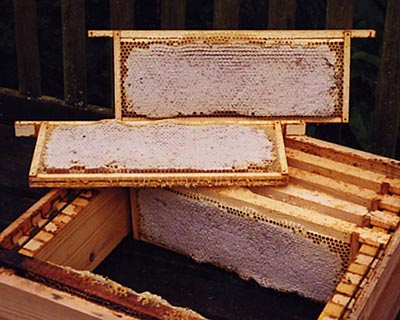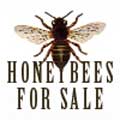Norfolk Honey - Beekeeper Patrick Laslett

Norfolk Honey - Patrick Laslett
I started my beekeeping some twenty years ago after completing the practical beekeeping course at Eastern College. I started with two beehives and all the beekeeping equipment sold to me by a beekeeper who was giving up because her bees (that she kept in her terrace back garden) were stinging her neighbours. They were not the gentlest of bees and over the years one of my tasks has been to acquire and breed better tempered bees.
Fortunately I had a great mentor who took me under her wing, showed me the way, gave me queens and even shared an apiary with me for several years. To this day, after many years, the descendants of her queens tend to be some of the best I have, in so much as they have a good combination of gentleness, a good ability to make honey and the lack of desire to swarm. Getting a good balance of these qualities plus over wintering (and now surviving the mite) is what every beekeeper aims for when selecting and breeding bees.
Now I work with other Norfolk beekeepers and together we supply nucs to
those wanting to start bee keeping or expand their apiaries. None of us
are strictly 'bee breeders' but bee keepers who enjoy raising our own queens
from our own stock. Our bees live all year round in Norfolk. I call our
bees Norfolk Mongrels.
I'm still trying to improve my own stock of bees and twenty years on I feel that I'm at last having some success in breeding at least one line of gentle bees that are easy to keep. My task now is to increase the amount of 'Dozy Bees' I have in my apiaries and to assess those for their Varroa resistent qualities. My aim is to improve the gentle stock even further by selecting for Varroa resistance if I can.

